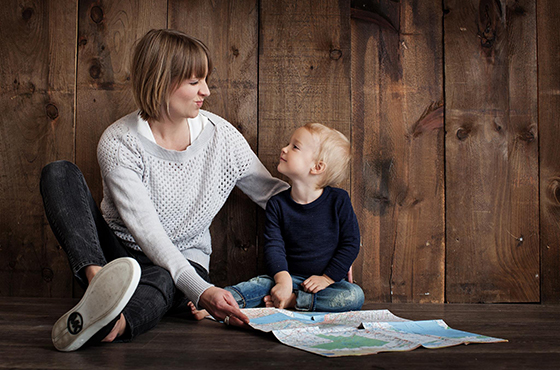
Your child may be reserved, not very talkative… Don’t worry! That’s about to change! Between the ages of 3 and 4, he’ll start asking you lots of questions, sharing his everyday astonishments and his irresistible desire to know: why is the sky blue? How do birds fly? What’s the navel for? Questions, questions and more questions!
By the age of 3, children have reached an important milestone, gradually developing their language and reasoning skills. They can use between 250 and 500 words, answer questions, tell stories, identify familiar colors and understand the times of day (morning, afternoon…). Asking questions is normal, natural and an important step in their development.
A natural need to know
The drive to know in children is spontaneous, and corresponds to the epistemophilic drive identified by Freud. Children need to become autonomous, take responsibility and act on their own. For example, a baby in a cradle makes movements and gestures that will enable him to master his body, and eventually to walk and experiment. The same applies to knowledge: children have a need to understand their environment, and show a natural curiosity that carries over into school and learning.
The role of parents?
Both at home and at daycare, we need to support this same curiosity, because if we respond satisfactorily, we cultivate the child’s motivation and pleasure in learning, insofar as we meet his or her needs. If this doesn’t happen, motivation is likely to wane, needs won’t be met and this frustration is likely to continue throughout the school career.
Even though parents may find the questions uninteresting, or feel tired of answering them, they shouldn’t forget what they were like as a child. This is a key moment for the child, and even if we don’t necessarily have all the answers to all the questions, we need to support them in the process, setting an example and looking for answers with them from an early age. The child will not only cultivate this desire to learn, but also develop greater self-confidence.
